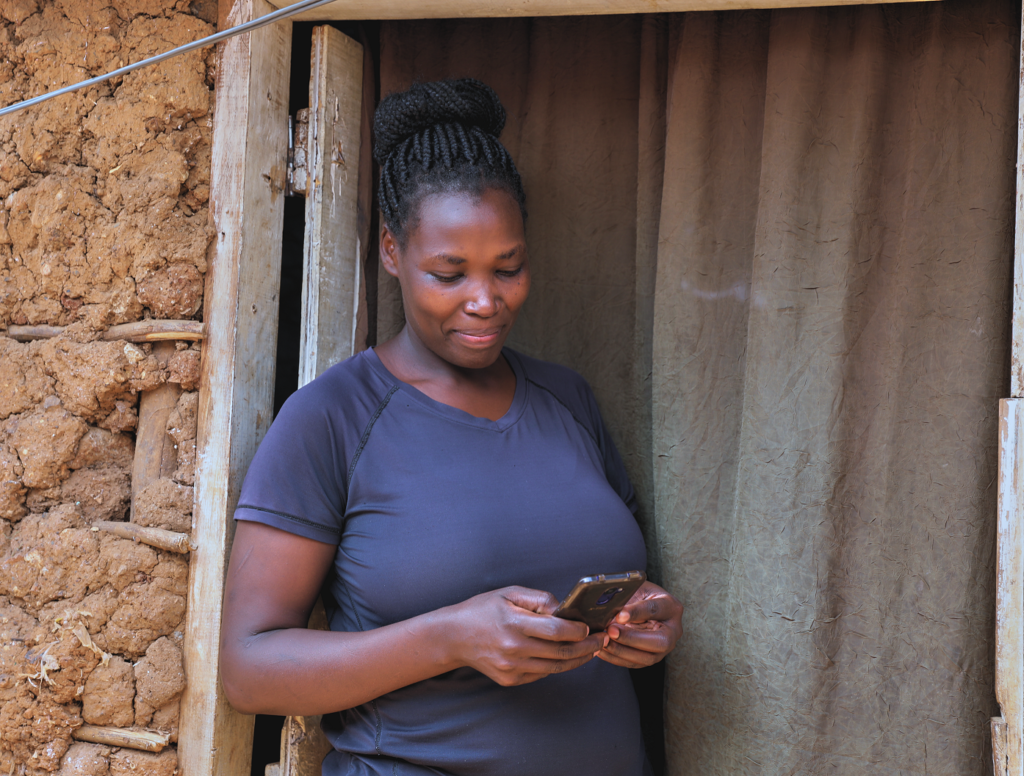
Lilian has witnessed too many preventable deaths amongst the mothers she shares a street with in Kibera, a vast informal settlement in the southwest of Nairobi. She herself had struggled to access timely, quality care when it was time to deliver her third child. Already in labor, she reached the facility only to find a line of women in similar stages of labor, all who’d been there for over six hours. Eventually, she was forced to leave, thankfully delivering a healthy baby girl at the last minute in a nearby health center.
Situations like this in Kenya are not isolated, where high patient volumes, staff shortages, and operational inefficiencies can compromise the quality of care and level of respect mothers receive at health facilities. Over half (55%) of all maternal deaths in the country are driven by poor quality care, and Kenya’s maternal mortality rate (362 deaths per 100,000 live births) remains well above the global rate (210). Despite strong political will to improve equitable access to maternal health care through a national health insurance scheme “Linda Mama”, poor quality or disrespectful care remains a pervasive issue and many mothers like Lilian find themselves ‘bounced-around’ between facilities to find the appropriate level of care.
Despite these challenges, few formal channels exist for women to share their experiences at facilities, beyond facility ‘exit interviews’ which are un-anonymized, often-costly, and difficult to scale. When Lilian signed up for PROMPTS, Jacaranda Health’s digital health tool, she quickly found it not only a lifeline for advice and information, but a channel through which she could report on her experiences of care in facilities – from its clinical quality to whether she was treated with respect.
Launched in 2017 as an SMS-based companion service for mothers, the platform now supports 1.5 million women across Kenya navigate their journeys through pregnancy and postpartum with increased confidence, and amplifies their voices to improve quality of care.
After her first prenatal check-up, Lilian received an SMS from PROMPTS, asking her for feedback on the visit and listing the key clinical checks she should have received, including an abdominal exam and urine test. Mothers are also prompted to share what information they received from the health provider, like discussing a birth plan, family planning options, or nutritional advice, depending on their gestation stage.
Lilian quickly capitalized on the opportunity to have a say on the care she received, including positive experiences. ‘At Bagadi [a Level 3 facility in Kibera], I was warmly welcomed and the nurse explained very well how I should be taking the medications.’ she explains. ‘My hope is that feedback like this will encourage the nurses to put the same efforts into helping other women like me.’
Her hope is well-founded. Each month, the data from mothers’ feedback is aggregated into ‘Quality of Care Scorecards’, simple, readable memos that rate facilities on key factors impacting maternal and newborn health outcomes, like clinical competency and respectful care. Facility and health system managers use this information to pinpoint clinical and systemic issues preventing mothers from receiving timely care – such as medicine stock outs, long waiting times, and poor provider attitudes – and ensure that there are sufficient resources – money, equipment, infrastructure – to achieve and sustain it. In Nakuru County, for instance, long-standing cases of reported abuse in certain facilities were resolved within a month as a result of targeted patient feedback.
Lilian is one of ~400,000 women who has shared their feedback through PROMPTS. The anonymity the platform offers not only empowers women to have a voice in the health system, but also doubles as a powerful accountability mechanism. ‘On SMS, I can give my feedback confidentially and explain very clearly how I was treated.’ shares Lilian. ‘I’d be afraid of saying this directly to a nurse as they might cover it up, get angry, or refuse to see you again.’
Jacaranda is now laying foundations for PROMPTS as a longer-term national resource that its government partners can sustainably own and finance within the health system. Whilst the platform is always free for mothers and maintains a low running cost ($0.74 per user), several efforts are underway to ensure, at scale, it remains inclusive for mothers and cost-effective for governments.
This includes research into whether Interactive Voice Response (IVR) might be a viable alternative to SMS for low-literacy mothers, and whether its AI-based system can be trained to read messages from mothers in multiple dialects. Jacaranda continues to work with local telecoms like Safaricom to further subsidize the cost of sending bulk SMSes, and with its county and national government, partners to support them to take on the financial and operational components of the platform.
Lilian has witnessed too many preventable deaths amongst the mothers she shares a street with. ‘I give my feedback so women like those I saw in the line have a better chance of giving birth safely.’ PROMPTS helps draw a dotted line between mother and those providing and making the decisions about her care. As the platform scales in Kenya and beyond, this accountability mechanism will only get stronger. ‘I feel like I’m having a bigger impact’, says Lilian. ‘If health providers are helped to go the extra mile for mothers like me, the world would be a better place,’ she adds.
About the Author
Laura Wotton, Head of Global Communications, Jacaranda Health
DISCLAIMER: The views, thoughts, and opinions expressed in this blog post belong solely to the authors and do not necessarily represent those of the Global Digital Health Network.